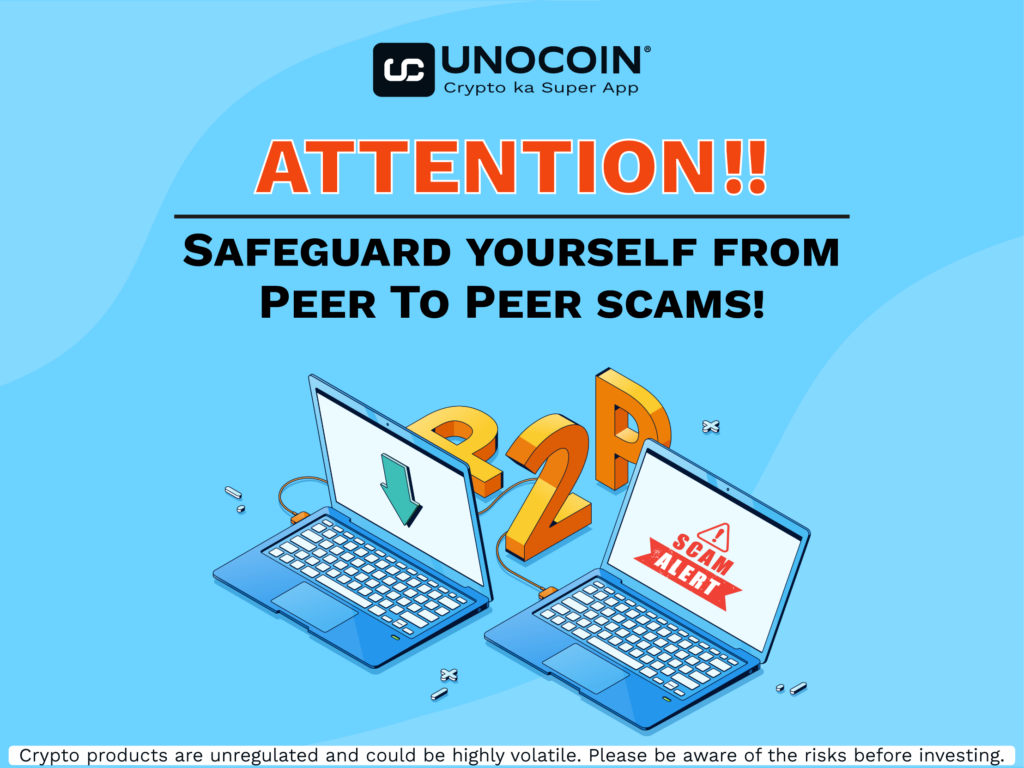Peer-to-peer (P2P) cryptocurrency trading has been a core component of the cryptocurrency ecosystem since its inception. It involves the direct exchange of cryptocurrencies between individuals without intermediaries. P2P platforms facilitate these exchanges and often include third-party escrow services for added security. Compared to centralized exchanges, P2P trading lies in its global availability, diverse payment options and minimal transaction fees.
In regions hostile to traditional cryptocurrency exchanges, P2P trading has proven to be a vital lifeline. India, for example, experienced a banking ban on cryptocurrency trading in April 2018. Although this ban was overturned by the Supreme Court in March 2020, Indian banks are still hesitant to offer services to crypto exchanges due to regulatory uncertainty. As a result, P2P platforms have thrived in this environment.
The 2021-2022 cryptocurrency bull market saw a surge in trading volume in India, drawing the attention of the government. While industry leaders have called for comprehensive regulations, India’s finance minister has imposed a hefty 30% tax on cryptocurrency profits in 2022. This high tax rate, along with ongoing regulatory ambiguity, has put many Indian investors off the market.
In this context, P2P platforms have seen a substantial increase in trading activity. However, the increase in the volume of P2P trading has also brought with it an increase in P2P fraud. These scams often involve stolen bank details or enticing promises of high profits, with fraudsters using this information to trick P2P users.
One common method scammers use is through fake cryptocurrency channels on platforms like Telegram. These channels promise lucrative returns or landings and lure unsuspecting users who then share their banking information. Alternatively, fraudsters can obtain or steal users’ personal information.
With this stolen data, fraudsters create P2P accounts on popular platforms such as Binance. They initiate purchase orders, seek out unsuspecting sellers and transfer money to sellers using the victim’s account. The scammer disappears with the cryptocurrency and the victim only discovers the scam after it has been debited from their bank account.
Victims report the fraud to the police, which leads to the freezing of all bank accounts involved in the fraud, including those of unwitting sellers. This legal action results in a long-term account freeze, causing considerable inconvenience to sellers who may also face legal investigation.
One anonymous seller described having his account frozen for 50,000 rupees, expressing fear of being approached by the authorities and potential legal consequences. Police often resort to freezing accounts due to a lack of clear guidelines regarding cryptocurrency-related crimes and a limited understanding of cryptocurrency technology.
Participating in tax evasion through P2P platforms to avoid 1% TDS is illegal and could lead to serious consequences from the tax authorities. Compliance is essential when investing in digital assets. Choose reputable exchanges like Unocoin known for their strict KYC regulations and top compliance standards to ensure legal and safe trading.
Prominent figures like Harish B.V (co-founder of Unocoin) in the Indian crypto community are advocating police training to effectively combat these scams. Fraudsters often use international platforms to evade Indian authorities, making it difficult for them to obtain the necessary documentation. This lack of awareness sometimes leads to harassment of victims who are falsely told that crypto transactions are illegal in India.
In response to the growing threat of P2P fraud, many crypto experts in India are advising traders to avoid P2P trading altogether. Mr. Sathvik Vishwanath,The CEO of Unocoin, a major Indian crypto exchange, has highlighted the risks of inadvertently sending money to the wrong recipient and subsequent warnings from government authorities. P2P scams have become so prevalent and when it comes to that, caution is preferred over convenience in the Indian cryptocurrency landscape.
Please find the list of authentic Unocoin accounts for all your queries below:
- YouTube Channel: https://www.youtube.com/c/Unocoin/videos
- Newsletter: https://medium.com/subscribe/@Unocoin_growth
- Blogs: https://blog.unocoin.com
- Instagram: https://www.instagram.com/unocoin/
- Twitter: https://twitter.com/Unocoin
- Facebook: https://www.facebook.com/unocoin/
- LinkedIn: https://in.linkedin.com/company/unocoin
- Telegram Group: https://t.me/Unocoin_Group
- Telegram Channel: https://t.me/+fasQhTKBsfA5N2Zl
- Telegram: https://t.me/UnocoinSupport_Bot
- E-mail id: support@unocoin.com
- Contact details: 7788978910 (09:30 AM IST – 06:30 PM, Mon – Sat)
- App store link: https://apps.apple.com/us/app/unocoin/id1030422972?ls=1
- Playstore link: https://play.google.com/store/apps/details?id=com.unocoin.unocoinwallet
Disclaimer: Crypto products are unregulated as of this date in India. They could be highly volatile. At Unocoin, we understand that there is a need to protect consumer interests as this form of trading and investment has risks that consumers may not be aware of. To ensure that consumers who deal in crypto products are not misled, they are advised to DYOR (Do Your Own Research).

